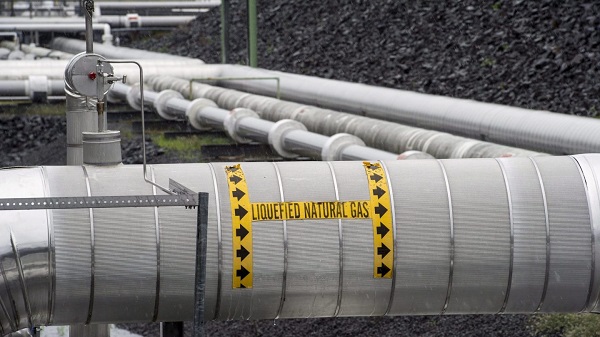
Within the first months of his second administration, President Donald Trump has prioritized “unleashing” American energy and has already axed several of what he considers to be burdensome regulations on the coal industry, promising it’s “reinvigoration.”
Trump signed an executive order on April 8 to revive the coal industry, and shortly after moved to exempt several coal plants from Biden-era regulations. Though it has become a primary target of many climate activists, coal has been historically regarded as readily available and affordable, and several energy policy experts who spoke with Daily Caller News Foundation believe Trump has the cards necessary to strengthen the industry.
“When utility bills are skyrocketing or blackouts are happening in winter, people are going to want reliable power back,” Amy Cooke, co-founder and president of Always on Energy Research and the director of the Energy and Environmental Policy Center told the DCNF. “The beauty of coal is that it allows for affordable, reliable power, which is absolutely crucial to economic prosperity, and in particular, innovation.”
“I think the number one, most significant threat to humanity is no power,” Cooke said, adding that coal is a vital contributor to the nation’s “baseload power.”
Following his executive order, Trump in early April granted a two-year exemption for nearly 70 coal plants from a Biden-era rule on air pollution that required them to reduce certain air pollutants. The Environmental Protection Agency (EPA) said that the move would “bolster coal-fired electricity generation, ensuring that our nation’s grid is reliable, that electricity is affordable for the American people, and that EPA is helping to promote our nation’s energy security.”
Shortly after, skepticism swirled surrounding whether or not the coal industry would be able to experience a revival, and whether it would be economically savvy to pursue one.
Energy generated from burning coal only powers roughly 16% of the U.S., though 40 states are dependent on coal, according to data from America’s Power. Energy generation through coal reached a record low in 2023, a Rhodium Group study reported. In 2021, however, coal was the primary source of energy for 15 states, according to the U.S. Energy Information Administration.
“We can lead the world in innovation,” Cook told the DCNF, referencing developments in natural gas and nuclear power as beneficial. “But you have to have coal. It has to be part of the mix.”
“It’s insane that we would shut down any base load power right now, when the demand for power is so high,” Cooke added. She further referenced the North American Electric Reliability Corporation’s 2024 report and research from Always on Energy Research that have projected rolling blackouts to begin across the U.S. by 2028.
As American energy demand continues to climb, the odds of impending blackouts would increase if the supply fails to grow at the same rate. The push toward renewable energy sources, in addition to stringent environmental regulations approved under former President Joe Biden, may have contributed to the slower growth of energy supply currently being experienced in the U.S.
Immediately after returning to the White House, Trump declared a national energy emergency, stating that “the integrity and expansion of our Nation’s energy infrastructure” is “an immediate and pressing priority for the protection of the United States’ national and economic security.”
“We looked at it and predict that there will be periods of blackouts of 24 hours or more,” Cook told the DCNF.
She further noted that “the cheapest power is the power you’ve already paid for,” arguing for the continuation of existing coal plants and the reopening of ones that have been closed.
“The only people who think coal is bad are those who view it through the lens of carbon emissions only, and that is no way to do energy policy,” Cooke said, arguing that it is necessary to adopt a “holistic” approach to energy generation, given the nation’s projected energy crisis.
“The American people need more energy, and the Department of Energy is helping to meet this demand by unleashing supply of affordable, reliable, secure energy sources – including coal,” Department of Energy Secretary Chris Wright said in an April 9 statement. “Coal is essential for generating 24/7 electricity,” he added, “but misguided policies from previous administrations have stifled this critical American industry. With President Trump’s leadership, we are cutting the red tape and bringing back common sense.”
The president has also said that he envisions greater job opportunities for coal miners with the industry’s expansion, stating during an April 8 press conference that the workers are “really well-deserving and great American patriots.”
“For years, people would just bemoan this industry and decimate the industry for absolutely no reason,” Trump added.
“Miners can wake up today for the first time in a decade and their spouses and families will realize they have a job tomorrow,” reporter Bob Aaron said in a video shared on X. They can “hear a president of the country announce that the war on coal is over.”
“I really anticipate a revival in the coal industry in the United States under Trump,” David Blackmon, an energy and policy writer who spent 40 years in the oil and gas business told the DCNF. He pointed to the Trump administration loosening restrictions on coal, adding that the Biden administration made it “near impossible” to build new coal plants due to aggressive climate rules.
Under Biden’s signature climate bill, the Inflation Reduction Act, the U.S. prioritized renewable energy generation and subsidization, resulting in a hefty price tag for taxpayers who had to foot the bill for several environmental initiatives, including hundreds of millions of dollars for solar panel construction in some of the nation’s least-sunny locations.
“The cheapest, the most affordable thing to do is to keep our current infrastructure online,” André Béliveau, Senior Manager of Energy Policy at the Commonwealth Foundation, told the DCNF. “Coal remains one of, if not, the most affordable energy source we have.”
“You’re forcing retirement of full-time energy sources and trying to replace them with part-time energy sources, and that’s not going to work,” Béliveau continued, referencing renewable energy avenues such as wind and solar. “We can’t run a full-time economy on part-time energy.”
Related




















